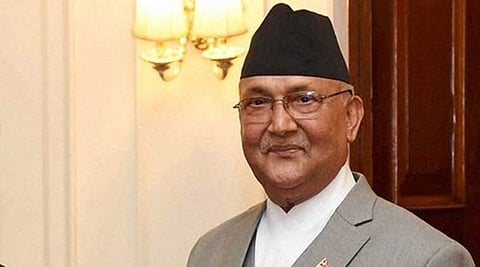

KATHMANDU: Nepal is drafting a new policy to "discourage" international NGOs from undertaking programmes with potential to hamper the country's relations with its giant neighbours, India and China, officials said on Sunday.
While cross-border terrorism and criminal activities continue to be the major causes of concern for India, China has in the past complained about the Tibetans' movement via Nepal.
Based on Nepal's foreign policy of keeping balanced relations, the projects that are opposed by either country will not be implemented, according to the draft of the strategy policy which is being prepared by the Social Welfare Council, The Kathmandu Post reported.
"Nepal is a land-locked country and has two large countries with large populations in the north and south," according to the draft.
The policy will discourage organisations from running programmes that can hamper Nepal's relations with the neighbouring countries, it said.
Council officials said the policy is still in the draft stage and some of its provisions are expected to be addressed by a new law on the registration of Non-Governmental Organisations (NGOs).
Durga Prasad Bhattarai, an information officer at the council, said the proposed policy is aimed at addressing the concerns of the neighbouring countries regarding the activities of NGOs, particularly in the bordering regions.
"The objective of the proposed policy is to reassert that Nepal government is concerned about the strategic mobilisation of international non-governmental organisations, particularly in the bordering regions, in the name of building madrasas and monasteries," Bhattarai was quoted by the Post.
According to the council, madrasas in the regions bordering India are receiving funds from countries like Qatar, Saudi Arabia and Turkey.
Rajendra Kumar Poudel, member secretary at the council, admitted that India has raised concerns, through the Home Ministry about the large presence of madrasas in the bordering region.
"So we have stepped up the scrutiny of the source of funds and nature of programmes to be run in the madrasas while providing approval for foreign funding. We are in favour of addressing India's concerns, but we have not taken any opinion from the Indian Embassy in Kathmandu," said Poudel.
Poudel, however, added it would be wrong to paint all the madrasas with the same brush.
"Some madrasas in Morang and Sunsari are doing well in imparting education and many others are also attracting students from across the border who live in a 5km-10km periphery of the border.
"We are equally sensitive about the mobilisation non-governmental organisations in the areas bordering China, so as not to have any negative effect on our relations with the northern neighbour," he added.
According to the Post report, India in the past has said that any kind of proliferation of extremism in the madrasas may hamper Nepal's internal security dynamics, and have repeatedly alerted Kathmandu to be cautious.